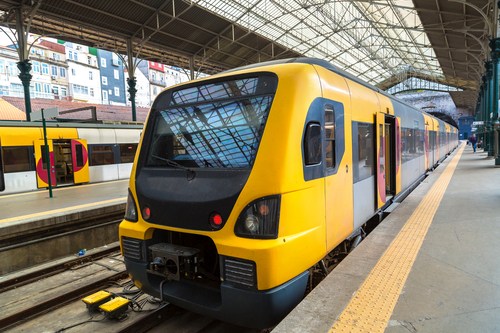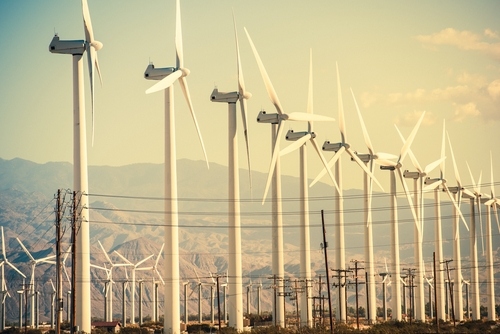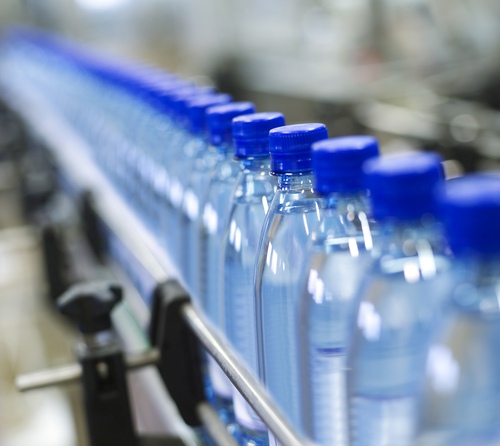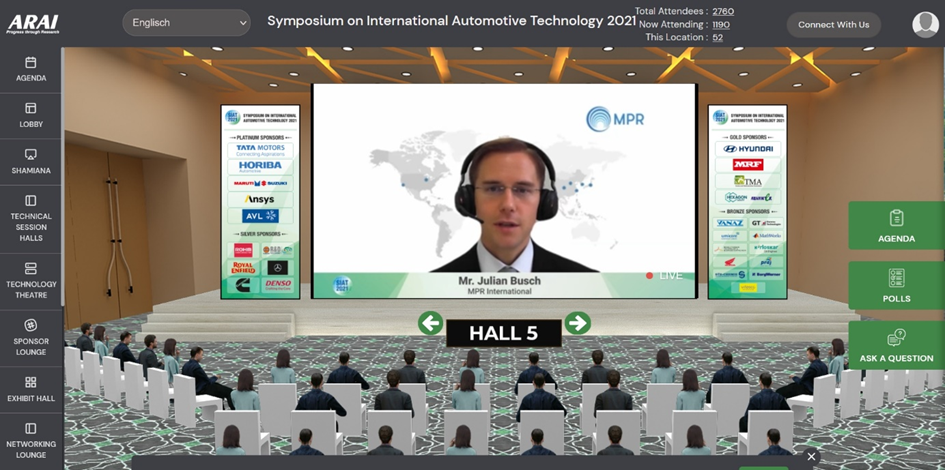Government approves trial of hydrogen-powered tram in South Korean city
A hydrogen-electric-powered tram developed by Hyundai Rotem will be trialled in the southeastern industrial and port city of Ulsan from 2023 as part of a government programme to promote hydrogen-powered trains. Hyundai Rotem is a subsidiary of the South Korean Hyundai Group and produces wagons and locomotives. The fuel cells used to power the trams come from the automotive industry and are modified for use in trains. To this end, the Ulsan city government announced that it had received final approval from the Ministry of Trade, Industry and Energy to proceed with the project. The trams used for testing are equipped with a 400 kilowatt fuel cell module and can travel up to 200 kilometres on one tank of fuel at a maximum speed of 70 km/h. Construction components of such transport vehicles often require KC approval for import and use in Korea to guarantee that they meet Korea’s high quality standards.

The trams are being developed and tested by Hyundai Rotem, which presented a concept study in April. About 36.5 million US dollars are being invested in the project, with the state-run Korea Railroad Research Institute (KKRI), the Korea Automotive Technology Institute (Katech) and the Ulsan Techpark among the partners. The government in Seoul wants to develop key technologies for hydrogen-powered trains together with domestic industry in order to offer the end products to foreign customers. Hydrogen-powered trams are believed to be the next generation of public transport. This could help advance South Korea’s plans for a hydrogen-based economy. A 1.9-kilometre light rail line without catenary is also being built in the southern port city of Busan. Construction work on this will begin this year, with completion scheduled for 2023. An extension of the line by another 3.3 kilometres is under discussion. Here, for example, the Hyundai Rotem fuel cell tram could be used.
Due to their environmentally friendly characteristics during operation, fuel cells are considered to be the powertrain and energy source of the next generation. The Hyundai Group, for example, is working on building up its value chain in the field of hydrogen with the development of cars, commercial vehicles, trains and ships with fuel cells or direct hydrogen powertrains. To this end, KRRI has entered into the development of locomotives with hydrogen engines that can travel at least 1,000 kilometres on one tank of fuel at a top speed of 150 km/h. The liquid hydrogen used as a fuel has the advantage over the gaseous phase that almost twice the amount of energy can be carried in the same volume. Disadvantages, however, are the complex cooling system and thick-walled tanks for insulation. The researchers at KRRI expect their technology to be ready for the market by 2025. In the second half of 2022, a prototype with hybrid powertrain, storage tanks and fast-charging function will be tested for this purpose.
South Korea is considered one of the most important and innovative industrial nations in the world. To gain market access to this highly technological country, products imported into South Korea must be tested and certified. The KC mark or KC certificate is roughly equivalent to the European CE mark and applies to 730 different products. MPR International GmbH has solid experience in Korea certification and competent local partners. We will be pleased to advise you without obligation about the scope and procedure of a Korea certification.
If you need assistance or have any questions regarding Korean certifications like KC, KC EMC, KCs or KCs for explosion safety products, feel free to contact us any time.
Tel.: +49-69-2713769259
Email: info@korea-certification.com
Urgent questions?
Please do not hesitate to contact us via chat. You will find the chat window at the bottom right of each page (if this is not visible, please check your browser settings).
For more information you can download our free brochure “Korea Certification Made Easy – The Booklet“.
Foreign companies show interest in wind power in South Korea
A growing number of globally significant names in wind power are entering the South Korean market. In addition, domestic power companies are increasing their cooperation with the foreign companies. Under the current circumstances, this will further increase the country’s dependence on foreign wind power. For example, Vesta, the world’s largest wind turbine manufacturer, signed a memorandum of understanding with Korea’s South-East Power and CS Wind last month. Orsted, the world’s largest producer of offshore wind power, had already established a subsidiary in South Korea two years ago and is now participating in a 1.6 GW wind power project in Incheon. The wind farm is scheduled to be commissioned in 2026. The Danish company invested the equivalent of US$6.75 billion in the project and is working on it together with POSCO. According to an agreement reached between the two companies, POSCO will supply steel parts to Orsted, and the electricity generated by wind power will be used to produce green hydrogen. Such steel parts and also other components can often be subject to KC certification in Korea, i.e. they must undergo product certification before they can be sold and used in the respective market.

Overall, there is increasing interest from international companies in the growing market for wind power in South Korea. This is according to information and figures from the Ministry of Trade, Industry and Energy. Plans are in place to expand the country’s annual wind power capacity to 12 GW by 2030. This would put South Korea among the global top 5. To achieve this goal, the ministry is allocating the equivalent of $55.7 billion in funding for the construction of wind farms and $38.8 billion for a 20-year operating period. Meanwhile, the competitiveness of South Korea’s wind power industry has not yet reached a satisfactory level. Doosan Heavy Industries & Construction is working on developing an 8 MW wind turbine, and Unison is working on a 10 MW version. However, they cannot keep up with foreign companies, including Vestas. Their wind turbines generate 12 MW of power and are already in operation in Denmark, and Vestas is already working on a 15 MW turbine.
Currently, more than half of all turbines and parts used in the wind power sector consist of imported components. Vestas’ market share is 34.3 percent, while Siemens Gamesa’s share is 10 percent. Korean companies such as Unison and Doosan Heavy Industries & Construction stand at 15.4 and 13.4 percent market share, respectively. South Korea is considered one of the most important and innovative industrial nations in the world. Many products imported into South Korea have to be tested and certified in advance. MPR International GmbH recommends itself as a partner for your Korea certification. We gladly check for you without obligation if your products are subject to certification and create an attractive offer for you.
If you need assistance or have any questions regarding Korean certifications like KC, KC EMC, KCs or KCs for explosion safety products, feel free to contact us any time.
Tel.: +49-69-2713769259
Email: info@korea-certification.com
Urgent questions?
Please do not hesitate to contact us via chat. You will find the chat window at the bottom right of each page (if this is not visible, please check your browser settings).
SK Global Chemical to build South Korea’s largest plastic recycling plant
SK Group company SK Global Chemical is investing the equivalent of $510 million in Ulsan to build the country’s largest plastics recycling plant. The construction is seen as a signal to transform the previously petrochemical-based company into an environmentally friendly one. To launch the project, SK Global Chemical signed a memorandum of understanding (MOU) with the city of Ulsan on July 8, 2021. The subject of the agreement is to promote plastic recycling projects. The company plans to build a plastic recycling plant using pyrolysis and depolymerization processes on an area of 160,000 square meters in Ulsan’s Mipo National Industrial Complex by 2025. Pyrolysis and depolymerization are chemical processes for recycling plastic waste. The pyrolysis plant can process up to 100,000 tons of plastic waste annually and is being built in collaboration with U.S. company Brightmark. Commissioning is planned for 2024. The pyrolysis oil produced by the process can be used as a feedstock for certain petrochemical products. Machinery and components for related recycling facilities may require Korea certification in order to be sold and used in Korea.

In addition, a polymerization plant is to be built that can process 84,000 tons of plastic waste per year. This plant is being built in collaboration with Loop Industries of Canada, a specialist in pyrolysis technology. The first part of the plant is to be built starting in 2023 and will be continuously expanded. For example, a recycling capacity of 900,000 tons is planned for 2025, and as much as 2.5 million tons for 2027. SK Global Chemical also plans to expand its recycling business to the entire Southeast Asia region. To this end, it recently invested the equivalent of $53 million for a 10 percent stake in Loop Industries. In return, SK Global Chemical received exclusive distribution rights for Loop Industries’ technology in Southeast Asia. Together, the two companies plan to build a total of four plants to process recycled PET in Asia by 2030, enabling more than 400,000 tons of PET waste to be recycled annually. The amount even exceeds the current 300,000 tons of annual PET waste from South Korea.
South Korea is considered one of the most important and innovative industrial nations in the world. Many products imported into South Korea have to be tested and certified in advance. MPR International GmbH recommends itself as a partner for your Korea certification. We gladly check for you without obligation if your products are subject to certification and create an attractive offer for you.
If you need assistance or have any questions regarding Korean certifications like KC, KC EMC, KCs or KCs for explosion safety products, feel free to contact us any time.
Tel.: +49-69-2713769259
Email: info@korea-certification.com
Urgent questions?
Please do not hesitate to contact us via chat. You will find the chat window at the bottom right of each page (if this is not visible, please check your browser settings).
For more information you can download our free brochure “Korea Certification Made Easy – The Booklet“.
Successful participation in the virtual Symposium on International Automotive Technology (SIAT) in India
From September 29 to October 01, 2021, the Symposium on International Automotive Technology (SIAT) took place in India with a variety of informative expert presentations around the topic “Redefining Mobility for the Future”.

After the official opening, plenary sessions discussed a variety of topics for the future. Topics ranged from alternative energies, e-mobility, emission control, to the general challenges in the international certification market.
Julian Busch, Managing Director of MPR International from Frankfurt, gave an overview of the current challenges in the international certification market. He explained the various types of certifications, how they are applied worldwide in a comparable form and how they differ greatly nationally. In this context, the increasingly complex test requirements represent a major challenge for the manufacturers of vehicles and components.
Currently, the most important certifications for the Indian automotive market are AIS (Automotive Industry Standards) certification or a certification from the BIS (Bureau of Indian Standards). The product scope for BIS certification alone was expanded by 242 product groups last year. The Indian authorities plan to continue this trend.
Automotive manufacturers and Indian test centres alike benefited from the information provided at the seminars. The information is valuable since the India market is booming with projected growth into the foreseeable future making product certifications more relevant. Due to the ever-increasing complexity of regulations, it is also important for the local test infrastructure to stay up to date.
To obtain certification in India, domestic and foreign automotive manufacturers must meet the same requirements. For example, in most cases, a factory audit and product testing are required as part of the certification process for both domestic and foreign manufacturers. Some products even require more than one certification. Good preparation and knowledge of the current regulations are crucial for smooth and trouble-free trading.
We will be happy to advise you on certification in India like AIS, BIS, WPC, TEC or PESO and are always available to answer your questions.
Please do not hesitate to contact us for further details and consultation. You can contact us via e-mail, or call us (UK: +44 2071931135, Rest of Europe: +49 69 2713769261, US: +1 773 654-2673).
If you have any questions you can also use our chat-window in the bottom right. (Please check your browser settings if you can’t see the window)
You can also check out our free AIS-Brochure and BIS-Brochure which can be downloaded for free in PDF format.


